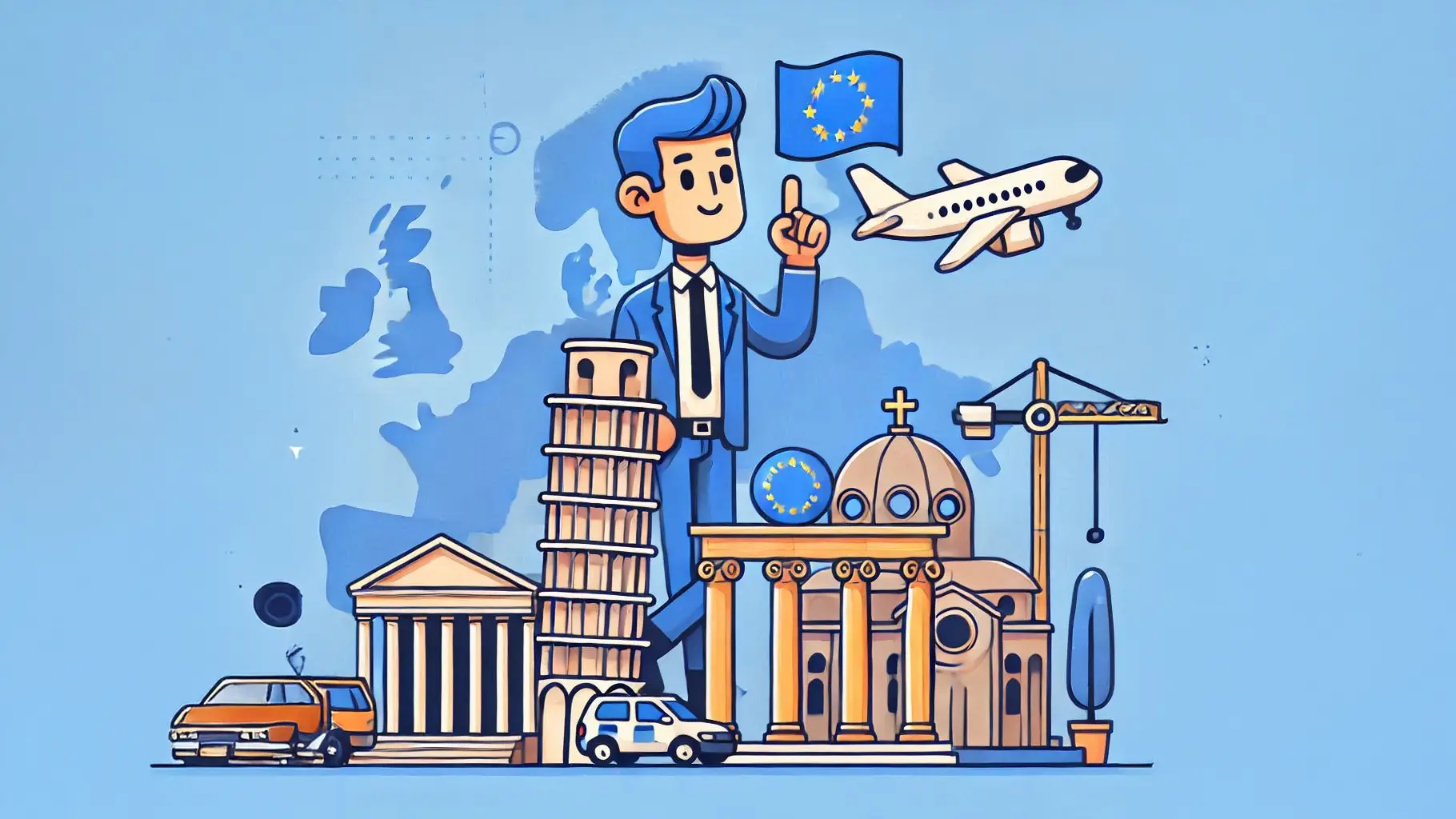
The Hard Truth About Building A Startup In Europe (and why it's working)
title: "The Hard Truth About Building A Startup In Europe (and why it's working)" description: "Let's be brutally honest: starting a startup in the Netherlands instead of the US feels like fighting with one hand tied behind your back. So why do it?" date: "2024-12-12" categories: ["Blog", "Europe"] imageUrl: "building-in-europe-landscape.png" imageCredit: "" published: true nrWords: 563 authors: ["Dennis van de Wiel"]
Let's be brutally honest: starting a startup in the Netherlands instead of the US feels like fighting with one hand tied behind your back. The numbers don't lie. US startups raised $285B in venture funding in 2023. The entire European startup ecosystem? Just $45B.
Add to that the American advantages that really sting: a unified market of 330M people (versus navigating 27 different EU markets), a deep pool of experienced startup talent, and customers who are willing to buy from startups. In Silicon Valley, being a startup is a badge of honor. Here in the Netherlands, it can feel like a mark against your credibility.
When I look at our US competitors, I see them scaling 3x faster, hiring 2x more engineers, and landing customers with minimal scrutiny of their financials or market position. Sometimes I lie awake at night wondering if we made a massive mistake building here.
The Advantages of Being the Underdog
But here's where it gets interesting. In the past 3 years of building our GRC automation platform, we have noticed some advantages of being based in the Netherlands:
'The Poverty Advantage' - Dutch startups are forced to be profitable earlier. Our financial discipline gave us an edge when the funding market cooled. While our US competitors are now scrambling to cut burn rates, we're focused on growth and making the best product we can.
'The High-Touch paradox' - We felt forced to combine software with hands-on service - something VC's condemn as 'less scalable'. But it became an edge we have over the competition: And when pitching against pure-software plays, this often tips the scales. The best thing? We learn from each project and build that into Tidal. It may be slower than 'move fast and break things', but it makes our software solve problems (instead of just doing stuff).
'The Dutch Early Adopter Paradox' - Probably the most unexpected one here: it refers to the Dutch ecosystem of Dutch companies, ISO auditors, and consultants. They're remarkably open to innovation and partnerships, probably because they're in the same boat. We've built partnerships that would take years to establish in the US, where these relationships are more commercialised.
Un Unexpected Advantage: 'The AI reset button'
There is another advantage that is not specific to EU, but does help beating the status quo: 'The AI reset button'. While US startups rush to slap AI onto their existing codebase, we are focused on practical applications that genuinely simplify compliance. In a way, we're using AI to replace what took our competitors years of engineering. And where US vendors scramble to maintain two versions of their AI systems - one for the US and a watered-down 'EU-compliant' version - we only need the one EU-compliant version. Sometimes starting later means you can skip the hard way entirely.
The Compliance Challenge
Speaking of compliance, I know many of you reading this are probably putting off getting a formal certification, such as ISO27001. The traditional consulting route is expensive, slow, and feels like throwing money into a black hole. (those who have gone through it will tell you - it hurts.). But in order to be successful in Europe, certification really is something you will need as well.
I'm always happy to have a chat about what worked for us and what we're seeing work for other founders in our ecosystem. Feel free to send me a DM on LinkedIn or grab a spot on my calendar.
I promise just a frank discussion and comparing notes about building in the Netherlands and making compliance less painful.
In summary
We, European entrepreneurs, might be building in a harder market, but we're making it work by playing to our strengths. The US advantage is real, but so is ours – it's just different. Let's team up and share experiences and our networks with each other - it makes us a stronger front to beat.
If you want to know how other Dutch startups cut their certification time in half while spending 60% less than with traditional consultants, book a demo with Tidal.
And yes, that last part was a sales pitch. I told you Dutch founders have to be profitable earlier.
Written by Dennis van de Wiel, Founder